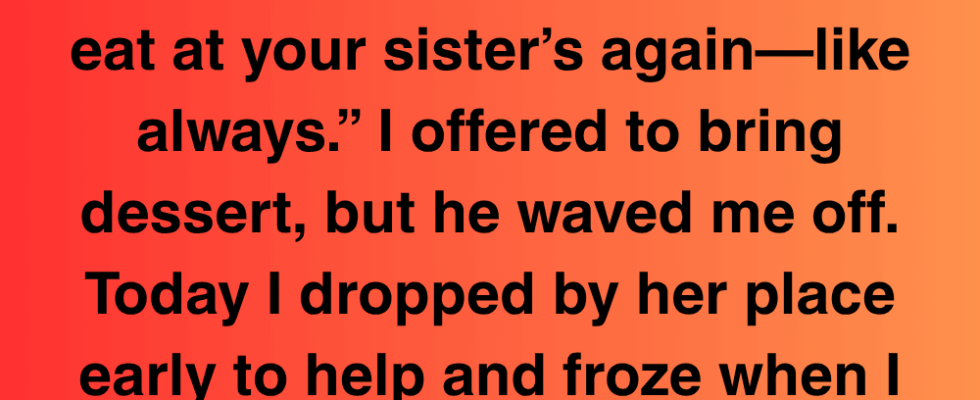When I told my dad I couldn’t host Thanksgiving this year, he barely looked up and scoffed, “Guess we’ll eat at Marlene’s again—like always.” I tried to soften it, offering to bring dessert or help with the cooking, but he just waved me off.
Marlene was my younger sister, a woman who never had children of her own but had babysat my boys, Max and Jordan, countless times while I worked double shifts. I was a single mom, exhausted but determined to give my sons a better life. I was proud of how hard I’d worked, how I’d been there through every scraped knee, every school recital, every late-night homework session.
But when we arrived at Marlene’s house for Thanksgiving, the moment I stepped inside, I felt a cold pit in my stomach. On the mantle, a framed photo caught my eye. It was a picture of Max and Jordan, but the label below read: “My Babies — The Ones I Raised Right.”
My breath caught. My sons. Not hers. How could she claim them like that?
I tried to brush it off, but later, when I asked about the photo, Marlene just shrugged and said, “It’s a joke. I was there when you weren’t.” Her voice was light, but the message was clear.
I was there. Exhausted, yes. Working two jobs to pay bills. Sacrificing time and sleep. Always there.
Dinner was tense. Marlene’s subtle jabs kept coming—little comments about how “kids these days need structure” or how “it takes a village.” My dad praised her nonstop, ignoring the hours and love I poured into my sons. I felt invisible.
When the conversation finally became too much, I slipped outside for some air. My cousin Alan found me and listened as I vented. He nodded knowingly, saying, “Marlene’s always liked rewriting history when it suits her. But you’re their mom. Don’t let her make you forget that.”
That night, after the boys went to bed, Jordan asked me softly, “Did Aunt Marlene really tuck us in every night?” I looked at his innocent face and told the truth: “No, sweetheart. I was the one who stayed up late, even after work, to make sure you both were okay.”
From then on, I started sharing our story again—with my boys. I dug out old photo albums, baby books, and bedtime stories, showing them the little moments I had kept tucked away during those hectic years. Slowly, I reclaimed our family narrative—our love, sacrifices, and memories.
Weeks later, my dad stopped by unexpectedly. He looked sheepish as he said, “Marlene showed me her scrapbook… You weren’t in it. I guess I was wrong to think you weren’t around as much as she said.” I saw genuine regret in his eyes, and for the first time in a long time, I felt a bridge start to mend.
At the next family picnic, I stood up and spoke quietly but firmly: “Love doesn’t need a photo or a label to be real. I’m their mom. I was there.”
Marlene sighed and admitted, “I guess I just wanted to feel important. I didn’t mean to hurt you.”
We didn’t solve everything that day, but the tension eased.
The following Thanksgiving, I hosted for the first time in years. It wasn’t perfect—Max spilled gravy on the tablecloth, and Jordan refused to eat the green beans—but it was ours. Honest. Imperfect. And filled with love that needed no labels.
